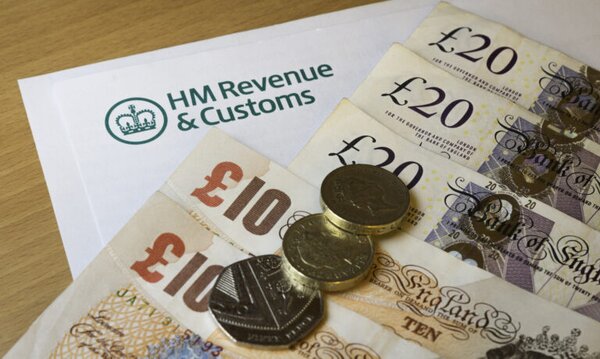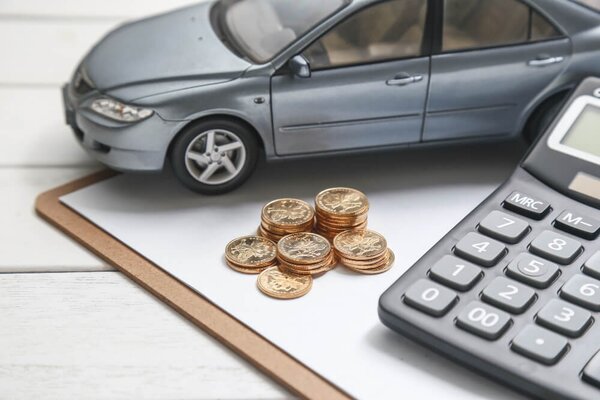Let’s Break This Down Together…
Selling on Vinted can be a great way to clear out your wardrobe, but when it’s time to do your tax return, things can get confusing fast.
From knowing whether your sales are taxable to working out the right figures for HMRC, it’s easy to feel overwhelmed if you’ve never dealt with online selling records before.
Selling clothes and accessories on Vinted can be a great way to declutter and make some extra cash. But if you’re making regular sales, HMRC will want to know about it when tax time rolls around.
HM Revenue & Customs (HMRC) has introduced new rules to make sure online sellers are paying the right amount of tax on their earnings. In addition, new legal obligations require digital platforms, such as Vinted, eBay, and others, to share sales data with HMRC.

Introduction to Tax Requirements
If you’re selling online, whether it’s clearing out your wardrobe, running a side hustle, or providing services, understanding your tax requirements is essential.
HM Revenue & Customs (HMRC) has introduced new rules to make sure online sellers are paying the right amount of tax on their earnings. This means that if you’re making money from selling services online or through platforms like eBay and Vinted, you may need to complete a Self Assessment tax return and pay income tax on your profits.
It’s important to be aware of the tax rules that apply to online sellers. Even if you only sell occasionally, you could still have tax obligations, especially if your total income from online sales and services exceeds certain thresholds.
HMRC offers general guidance to help you understand when you need to declare your earnings, how to pay, and what counts as taxable income. Staying informed and keeping your tax affairs in order will help you avoid unexpected bills or penalties, and ensure you’re meeting your legal obligations as an online seller.
What Vinted Sales Data Do You Need for Your Tax Return?
For your tax return, you’ll need a complete record of all your Vinted sales during the tax year. This covers the period from 6 April to 5 April. It’s important to track all relevant dates for tax compliance and to ensure you meet reporting periods and key deadlines.
Your records should include the sale price of each item, the date sold, and any fees paid. Tracking postage costs is also important, as these are often tax-deductible expenses.
Don’t forget to note any refunds or cancelled orders too. HMRC expects accurate reporting that reflects what actually landed in your bank account. Meeting HMRC requirements for record-keeping is essential for all Vinted sellers to ensure legal and financial accuracy.
If you’re selling unwanted possessions or personal items at a loss, this generally isn’t taxable. But you’ll still need records to prove this if HMRC asks questions.
Record-Keeping for Tax Purposes
Good record-keeping is the foundation of smooth tax returns and peace of mind. For anyone selling on Vinted or other online platforms, keeping accurate records of your sales, expenses, and profits is a must.
This means logging every sale, including the date, amount, and details of what was sold, as well as keeping receipts and invoices for any expenses related to your online selling.
Don’t forget to keep your bank statements and any other financial documents that show payments received or costs incurred. HMRC requires you to keep these records for at least five years after the 31 January deadline for the relevant tax year’s Self Assessment tax return.
Using a digital platform or accounting software can make this process much easier, helping you organise your records and ensuring you’re always ready if HMRC asks for details. Staying on top of your records not only helps you complete your tax return accurately, but also makes it easier to track your business’s performance and claim all allowable expenses.

How to Download Your Vinted Sales Data
Unfortunately, Vinted doesn't offer a simple "export all" button for your sales history. You'll need to gather this information manually.
Start by logging into your Vinted account on a desktop computer. Click on your profile picture, then select "My items" and filter by "Sold items".
For each sale, click into the transaction details to see the sale price, Vinted fee, and postage cost. You'll need to record these details in a spreadsheet.
If you have lots of sales, take screenshots of each transaction page. This creates a backup of your sales data that you can refer to later.
For older transactions, go to "Wallet" and then "Transaction History". This shows a more complete record of your Vinted activity.
Creating a Tax-Ready Spreadsheet of Your Vinted Income
Set up a simple spreadsheet with columns for the date, item description, and sale amount. Add columns for Vinted fees, postage costs, and net profit.
Add a row for each sale, filling in all the details from your Vinted account. This might take time, but it's much easier than scrambling for information at the last minute.
Calculate totals at the bottom of each column to see your gross sales and net income. These are the figures you'll need for your Self Assessment.
Save your spreadsheet with a clear name like "Vinted_Sales_2024-2025_Tax_Year". Back it up somewhere safe, as HMRC can ask to see your records for up to 6 years.
I once spent an entire weekend trying to piece together a year's worth of Vinted sales the day before my tax deadline. Trust me, maintaining a simple spreadsheet throughout the year is much less painful!

Calculating Income Tax on Your Vinted Sales
When it comes to paying income tax on your Vinted sales, the key is to work out your taxable profit. Start by adding up your total sales for the tax year, then deduct any allowable expenses, such as postage, packaging, and Vinted seller fees.
If you’re eligible, you can also claim the £1,000 trading allowance, which means the first £1,000 of your self-employed profits are tax-free.
Once you’ve subtracted your expenses and any trading allowance from your total sales, you’ll have your taxable profit. You can then use HMRC’s income tax rates to calculate how much tax you need to pay.
Keeping detailed records of your sales and costs throughout the year will make this process much simpler and help ensure you’re paying the correct amount of tax on your Vinted profits.
When You Need to Declare Vinted Income
People selling on Vinted and other online platforms need to be aware of their tax obligations, as online marketplace sales are increasingly scrutinised by HMRC.
The £1,000 trading allowance is your friend here. If your total income from Vinted is under £1,000 for the tax year, you typically don’t need to declare it.
If you’re regularly buying items to sell at a profit, HMRC considers this trading. You’ll need to declare it regardless of how much you make. In these cases, you may need to pay tax and, if your profits are high enough, national insurance as well.
Selling your own unwanted items at a loss generally doesn’t count as taxable income. But if you’re making a profit, even on personal items, that could be taxable. People selling regularly should be aware of their responsibilities to report income and pay any taxes due.
From 2024, platforms like Vinted will be sharing seller data with tax authorities. This is part of a new process for data sharing between digital platforms and HMRC, not a new tax. It’s best to stay on top of your reporting obligations.
Reporting Vinted Income on Your Self-Assessment
If you need to declare your Vinted income, you’ll need to register for Self Assessment. This can be done through the HMRC website if you haven’t already. You will also need to register for a Government Gateway user ID to access HMRC's online services and manage your tax affairs.
For casual selling above the £1,000 allowance, report this under “Miscellaneous income”. For regular trading, use the “Self-employment” section. If your activity qualifies as a trade, you must report it under the self-employment section.
Income from providing a service or paid for service through Vinted or other platforms should be declared appropriately. Vinted sellers who provide a paid for service or trade regularly must ensure they file their tax return accurately.
Include your Vinted fees and postage costs as allowable expenses. This reduces your taxable profit and the amount of tax you’ll pay.
The HMRC app can provide guidance and updates for Vinted sellers about online selling, sales data sharing, and tax obligations.
Don’t forget the 31 January deadline, which is one of the key dates for filing and paying your tax. Late submissions face automatic penalties, starting at £100.

Paying Tax and Penalties
If you owe tax on your online sales, it’s important to pay your tax bill by the deadline to avoid penalties and interest charges.
HMRC takes late payments seriously, and missing the payment date can result in automatic fines and additional interest on the amount you owe. To stay on top of your tax obligations, make sure your records are up to date and set aside funds to cover your tax liability.
If you’re unsure about any aspect of your tax situation, it’s a good idea to consult a tax advisor or accountant for guidance. You can pay your tax bill online or by post, whichever is most convenient for you.
By being proactive and aware of your responsibilities, you can avoid unnecessary penalties and keep your online selling business running smoothly. Remember, paying tax on time is not just a legal obligation, it’s also the best way to protect yourself from unexpected costs and HMRC enforcement action.
Common Mistakes to Avoid with Vinted Tax Reporting
A common error is forgetting to keep records throughout the year. Set up your tracking system now, not in January when you're rushing to meet the deadline.
Many sellers don't realise they can deduct legitimate expenses. These include packaging materials, printer ink for shipping labels, and even a portion of home internet.
Mixing personal and selling accounts can make tracking harder. Consider a separate bank account for your Vinted payments if you're selling regularly.
Some sellers wrongly assume that selling unwanted clothes doesn't count for tax purposes. HMRC cares about the pattern and profit, not what you're selling.
Final Thoughts
Staying on top of your Vinted sales data makes tax season much less stressful. A little organisation goes a long way.
Remember that HMRC is increasingly focusing on income from online platforms. Proper record-keeping isn't just helpful, it's essential.
Whether you're a casual seller or building a Vinted side-hustle, understanding your tax obligations now can save you headaches later.
Pie tax: Simplifying Vinted Sales Data for Tax Return
Managing tax for your Vinted selling shouldn't be a headache. The UK's first personal tax app, Pie tax, helps online sellers track income and expenses in real-time.
The straightforward dashboard shows exactly what you owe in tax. There's no complicated jargon or confusing calculations to work out yourself.
Fancy seeing how much easier your tax life could be? Take a look at how Pie tax works for online sellers like you.











